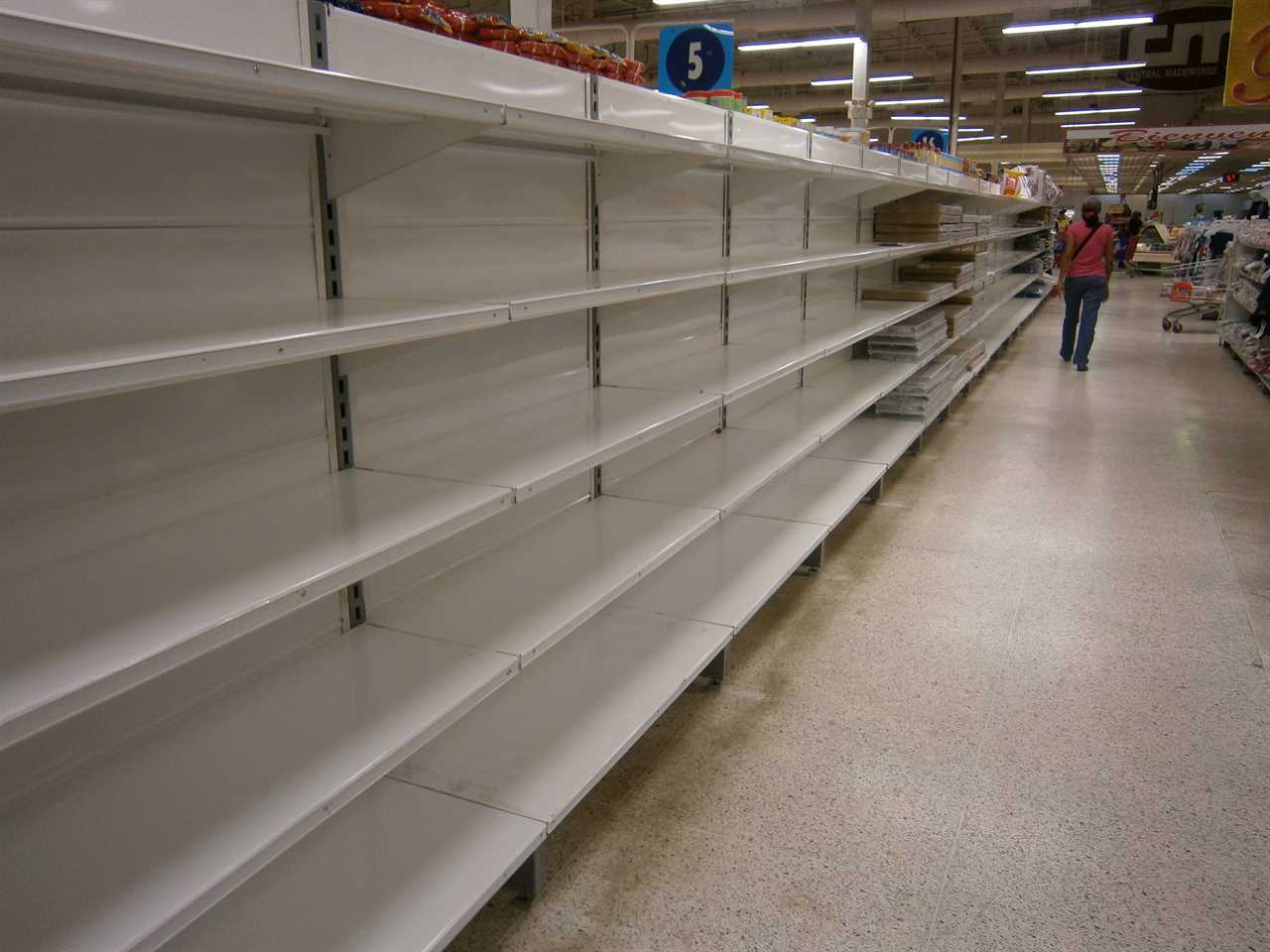A “resource cursed” country is one in which an abundance of natural resources fosters worse development outcomes than those without. Often termed “the paradox of plenty”, many economies which rely on the rents supplied by valuable commodities such as oil and minerals, have been known to achieve lower levels of economic development despite the enormous potential offered by their resources.
Examples can be found across continents, from Venezuela which experienced growth rates of -19.62%, -35% and -25% in 2018, 2019 and 2020 despite claiming the largest oil reserves of any country in the world, to Nigeria, which despite having the largest population in Africa, has failed to reflect its vast oil wealth in its GDP figures.

Empty shelves in a Venezuelan supermarket. Scenes like this have become common around the country since a major economic crisis began in 2010 under Venezuela’s late Socialist president, Hugo Chavez. Anti-democratic governance, corruption and mismanagement of the economy as the main causes of the crisis. WIKIPEDIA
Countries with abundant natural resources but low levels of governance often face a particularly violent form of “resource curse”. This is when competition for the country’s wealth leads to the formation of warring factions, at the expense of long-term economic development. This failure of governance can exacerbate a “resource curse”, something then-US Secretary of State Hillary Clinton warned the newly independent nation of South Sudan in 2011.
The United Nations warned in April that the oil-rich nation of South Sudan risks descent into “large-scale conflict”, with a 2018 peace deal threatened by the “slow pace of reforms” and “political disputes”. This fearful warning asks us whether South Sudan can avoid descending into the “conflict trap”, a pattern recognised by scholars in which civil wars tend to repeat themselves. The British development economist Paul Collier, in his 2007 book The Bottom Billion, cites “The Conflict Trap” alongside “The Natural Resource Trap” as two reasons why impoverished countries fail to progress despite international support.
The case of South Sudan is also front of mind owing to a new report authored by international criminal law experts Steven Kay QC of 9 Bedford Row, and Rupert Boswall, of RPC Solicitors. In the independent report, published this month, the two authors recount how the Nordic energy company Lundin has been subject to a 10-year investigation by the Swedish authorities, related to its operations in southern Sudan in 1997-2003.
The authors explain how, despite the promising development potential of Sudan’s oil resources and EU encouragement, which attracted many international companies to the country, false allegations that oil companies were complicit in alleged war crimes made by the rebel militia ultimately seeking secession for South Sudan from the country’s Khartoum government were given credibility when adopted by certain NGOs. Despite being exonerated by a full EU investigation of the allegations in 2001, Lundin decided to leave Sudan as did others.
The authors note that the investigation into Lundin executives, which considers NGO allegations against them of alleged complicity in alleged war crimes committed by the Sudanese government, is rooted in claims articulated by the Sudan People’s Liberation Movement/Army (SPLM/A) and its sympathisers, rather than impartial evidence which would be admissible in an international criminal investigation or prosecution. It is for this reason, the authors argue, that no decision to charge has been reached despite eleven years of investigation and why any trial now would be against the rule of law.
This case underscores just one of a host of problems faced by energy companies operating in countries with poor standards of governance. Exposure to politically motivated attacks can have serious repercussions, dissuading future partners from taking on the same risks at the expense of resource-rich economies. Conversely, countries with good governance can successfully avoid the “resource curse” and the conflict trap, by establishing regulatory systems which promote transparency as well as policies that channel resource wealth to sustainable development.

A worker surveys the facilities at South Sudan’s Toma oil fields.
Strong governance, in the form of political and legal institutions, can suppress the need for rebel movements to start wars, avoiding the pattern of repeat wars that characterises the conflict trap. And yet, many emerging markets struggle to do this by themselves, meaning they must seek the collaboration of international partners not just with respect to their institutions, but their resources too, something noted by the Council on Foreign Relations which states: “Capital-exporting countries, international financial institutions, and private-sector companies should cooperate…to foster good governance in the extractive industries sector.”
Good governance can hold the key to countries avoiding the “resource curse” and the conflict trap. But given the challenges and risks posed to parties helping implement those standards, it is certainly easier said than done.
 UK PoliticsWorld PoliticsVideosPrivacy PolicyTerms And Conditions
UK PoliticsWorld PoliticsVideosPrivacy PolicyTerms And Conditions
